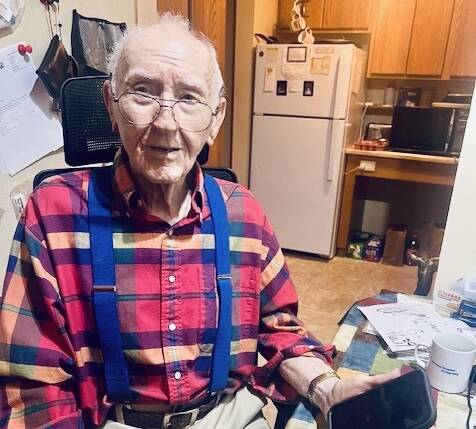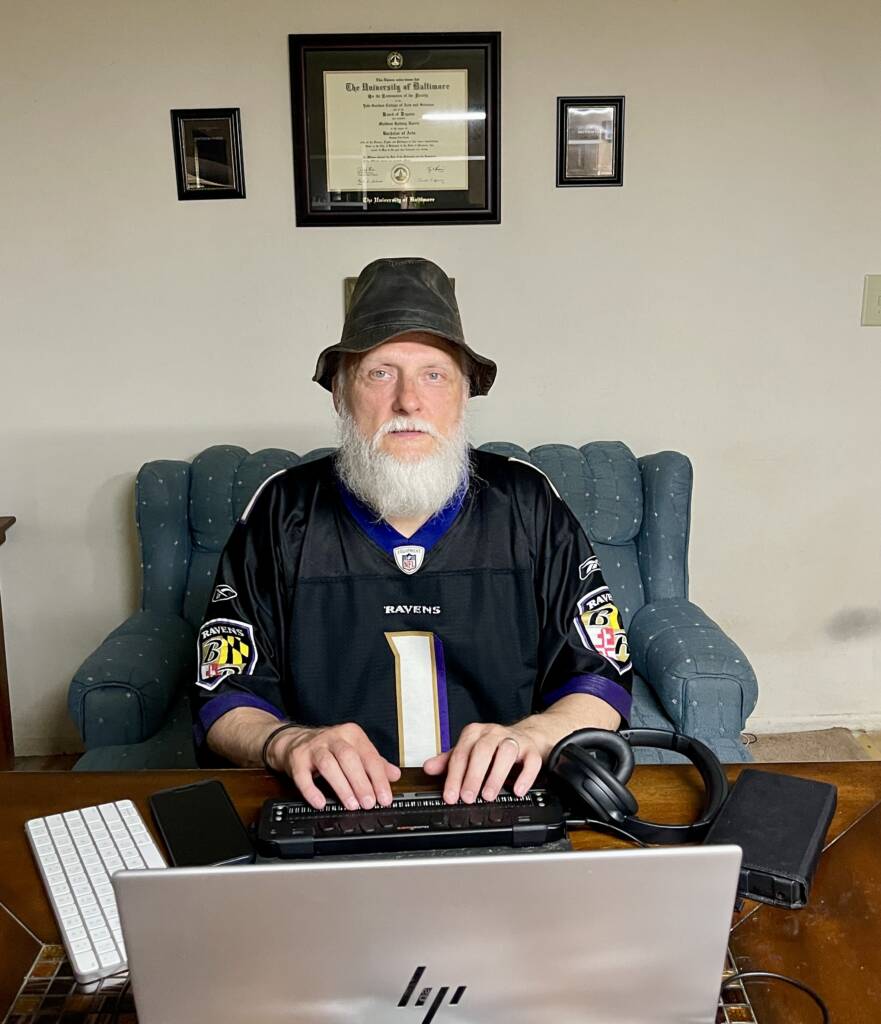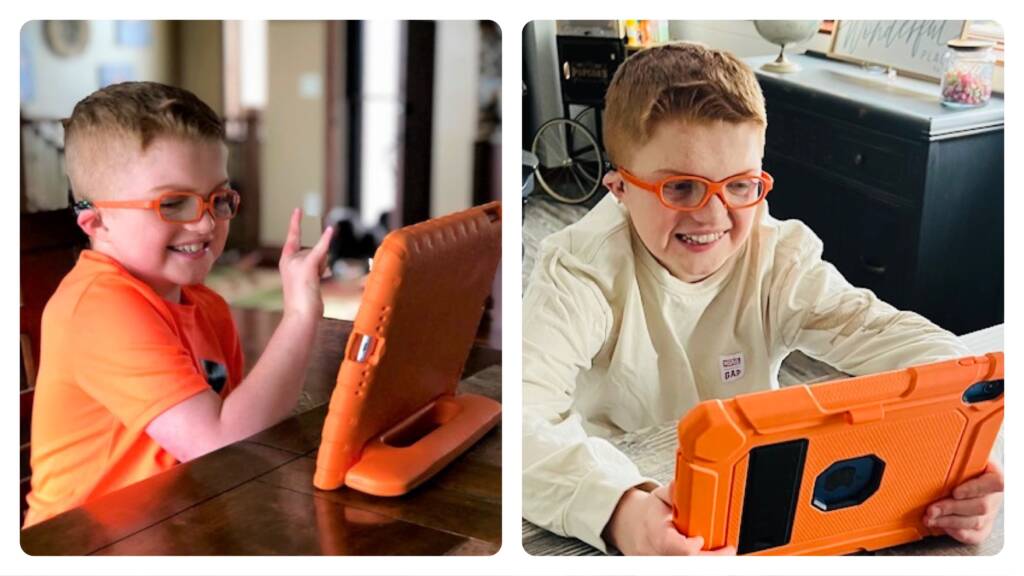Wanda Grizzel of Grundy, Virginia never really gave technology a second thought. She talked with her family and friends over a landline telephone, which was just fine until she could no longer hear them. Now, Wanda stays in touch thanks to the Apple iPad she received through the National Deaf-Blind Equipment Distribution Program, which is promoted as iCanConnect.
“I love it! I can’t live without it now,” says Grizzel, who was born in the 1950’s when a single computer would fill the floor space of an 1800 square foot room. Because of optic nerve damage at birth, Grizzel grew up with limited eyesight. Later, infections damaged her eardrums leading to progressive hearing loss.
“With my hearing, I’d have to ask someone to repeat themselves all the time.”
The dual sensory loss made school difficult and prevented her from getting a job. Before she learned about iCanConnect, Grizzel never owned a computer. That’s one reason why keeping in touch by tablet is so special. The iPad is now her lifeline. “I get on it every day,” she says, using email to stay in touch with family and friends and using Facebook to connect with people far removed from her rural southwest Virginia home.
“I’ve made a lot of friends. It’s how I keep in touch.”
iCanConnect provides modern communications technology and one-one-one training at no cost to low-income people with combined vision and hearing loss. Devices like smartphones, braille devices and laptops are available to those who qualify.
In Virginia, iCanConnect is administered by the Virginia Department for the Deaf and Hard of Hearing (VDDHH) in collaboration with the Virginia Department for the Blind and Vision Impaired (DBVI). Christine Day is a deaf-blind specialist who worked with Grizzel and her family to secure the iPad and provide training. She says the technology has had a tremendous impact on their lives.
“They are able to contact each other quickly and effectively. They (family) think it has really made a difference with Wanda.” As for learning the new technology, Day says Grizzel took to it right away.
“When communication becomes difficult, people (with combined hearing and vision loss) seem to withdraw. There is a sense of isolation,” says Day. “With the devices, those walls are broken down.”
The iPad has given Grizzel a newfound sense of independence, which she says is priceless. “I can stay in touch on my own.”
iCanConnect is available in all 50 states, the District of Columbia, Puerto Rico and the U.S. Virgin Islands. Learn more at www.iCanConnect.org. Click on “State Partners” to find each state’s contacts. The website is accessible to users with low vision and those who use screen readers, and it features video that is both audio described and captioned. Information about iCanConnect is also available by calling 1-800-825-4595 Voice or 1-888-320-2656 TTY.



